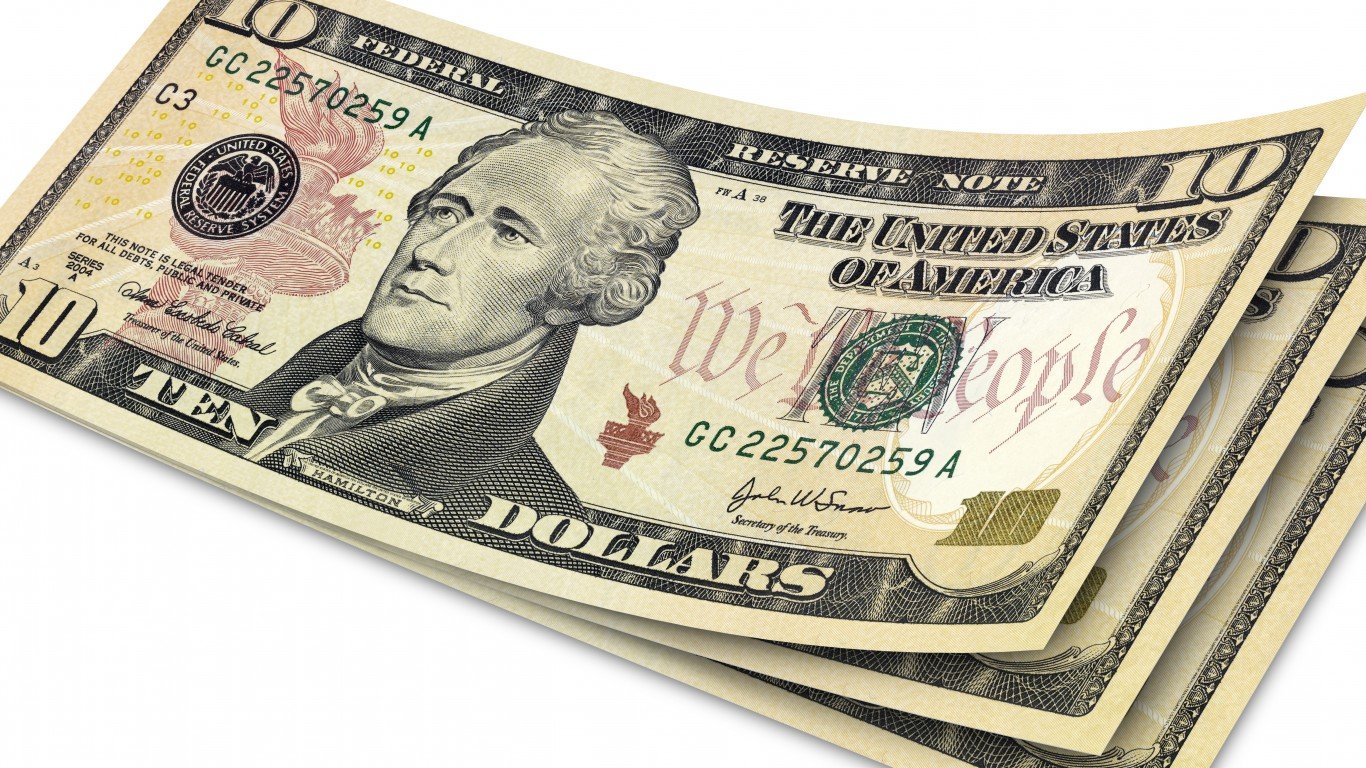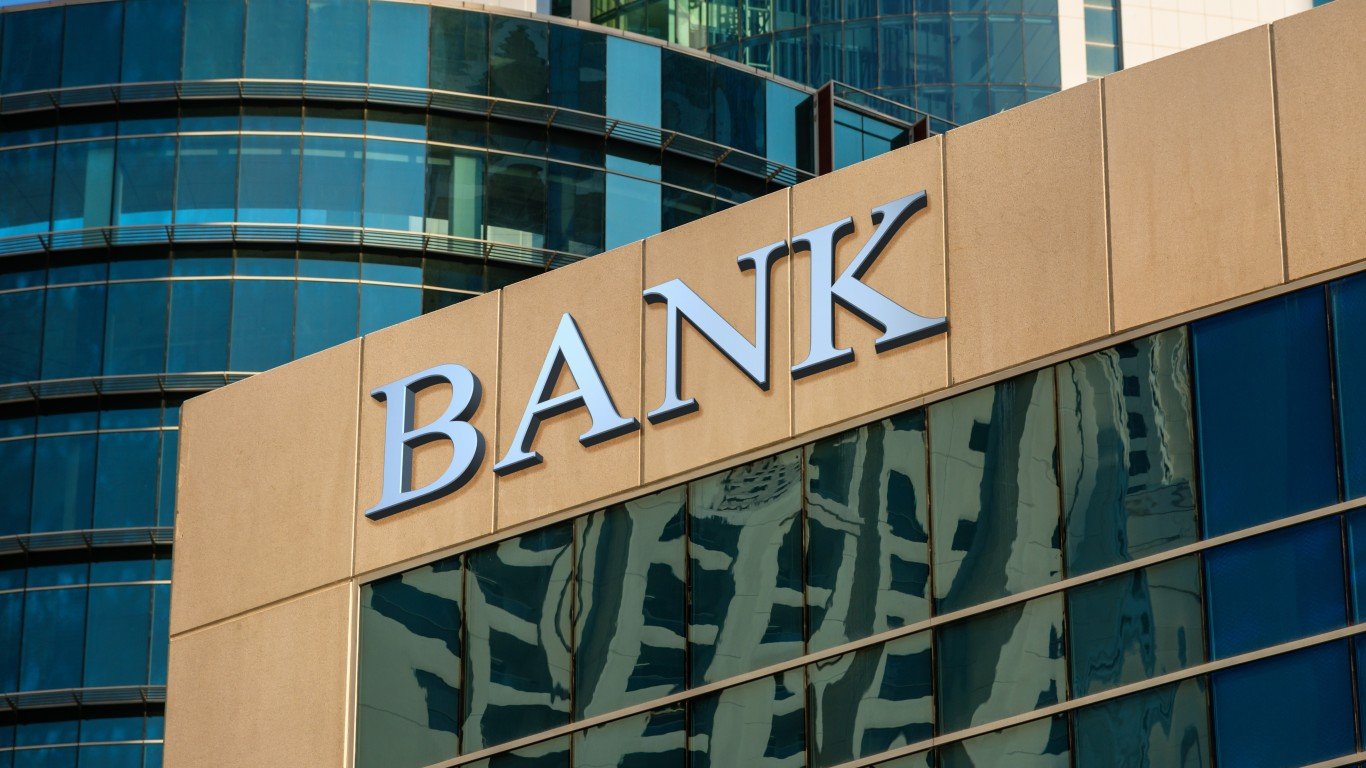

After what can only be called a dismal first half, most investors are looking for some relief in the form of returns for the remainder of 2022. If anything is different about the current moment, it is that investors are looking for potential short-term winners to help reduce, if not overcome, the losses of the first half of the year.
On Friday, Bank of America published its Top 10 U.S. Ideas for the third quarter. The bank’s chief investment strategist, Michael Hartnett, continues to expect a strong bear market and that the bottom has still not been reached. He also thinks that markets “could experience strong bear market rallies in the near-term” and that investors “should sharpen their pencils and be ready to add to positions on abrupt and potentially short-lived pull-backs.”
[in-text-ad]
As for the Federal Reserve and rising interest rates, BofA believes that the federal funds rate will close 2022 at 3.25% to 3.50% and rise to 4.0% to 4.25% by the middle of next year. The banks’ economists do not expect any rate cuts this year but believe the market will price rate cuts in as global growth continues to slide.
BofA’s fundamental equities analysts have picked nine high-conviction ideas to buy and one to short. Here is a look at BofA’s Top 10 Ideas for U.S. stocks in the third quarter.
AutoZone
AutoZone Inc. (NYSE: AZO) gets the sole Underperform rating. BofA analyst Elizabeth Suzuki also has a price objective of $1,795. At Friday’s closing price of around $2,160, the potential downside on the shares was 16.7%. Suzuki points out that about 80% of the company’s customers are do-it-yourselfers who will be watching their spending more closely during the current inflationary period.
A related issue is the lapping of last year’s stimulus-driven sales, which raised the target for same-store sales: “Assuming no new incremental government benefits, the lapping of stimulus payments combined with rising cost of living presents a material [year-over-year] headwind to DIY auto parts spending, which is likely one of the factors driving the YoY decline in auto parts retail spending ….”
The upside risk to the bank’s view is stronger than expected demand, a resurgence in COVID-19 infections, more economic stimulus for low-income consumers and larger than expected share buybacks.
Charles Schwab
Charles Schwab Corp. (NYSE: SCHW) is a financial services firm that focuses on retail investors but includes advisory services as well. Analyst Craig Siegenthaler has a Buy rating on the stock, with a price objective of $90. At Friday’s closing price of around $64, the upside potential to BofA’s target was 40.6%. Schwab is expected to benefit from rising interest rates because about 60% of its revenue stream is tied to those rates.
Siegenthaler expects rising interest rates to raise Schwab’s net interest margins to around 2.52% in 2024. He also likes the way the company uses its bank to “more efficiently manage its client sweep and allow the broker to generate higher returns on its client cash balances.” Downside risks include growth challenges, more competition and added regulation on payments for order flow.
[in-text-ad]
EPAM Systems
EPAM Systems Inc. (NYSE: EPAM) provides a software development platform and engineering services to customers worldwide. BofA analyst Jason Kupferberg rates the stock a Buy with a price objective of $400. At Friday’s closing price of around $302, the upside potential to Kupferberg’s price target was about 33%.
In recent comments about the company, BofA was impressed by its ability to cut by half its headcount in Russia, Ukraine and Belarus and to ramp hiring in Latin America and India. EPAM has beaten consensus revenue estimates for the past 15 consecutive quarters and fallen short of sales estimates in just two of the past 40. The primary risks for the company are volatility in revenue from its largest clients, competition for engineering talent, geopolitical volatility, cyclical demand and regulatory uncertainty.
Exelon
Since Exelon Corp. (NYSE: EXC) spun off its unregulated Constellation Energy business into a separate company, BofA analyst Paul Zimbardo feels that the remaining regulated business is “attractively valued and defensively positioned.” He rates the stock a Buy and has a price target of $54. At Friday’s closing price of around $46, the upside potential to Zimbardo’s price target was 17.4%.
A favorable proposed decision in an Illinois investigation could be settled for repayments to Commonwealth Edison customers of $31.3 million. Both Illinois and Maryland are considering performance-based rates based on utility performance, and BofA noted, “Exelon has a track record of solid operational performance and we would view the creation of performance incentives favorably, enhancing confidence in earnings per share trajectory at the top-end of the 6-8% guidance range.”
Kroger
Kroger Co. (NYSE: KR) is the largest U.S.-based grocery store by market cap, and BofA analyst Robert Ohmes has a Buy rating on the stock with a price objective of $75. At Friday’s closing price of around $48, the upside potential was 56.3%. Ohmes sees “upside to guidance” based on the company’s cost savings target for 2023, “a customer shift from digital back to stores, enhanced digital personalization targeting value sensitive customers” and other initiatives.
The analysts expect food inflation to continue into the first half of next year and that grocery stores will continue to have the ability to pass price increases on to consumers. Downside risks include greater than expected headwinds in pharmacy, fuel and employee wages and benefits.
[in-text-ad]
Meta Platforms
Meta Platforms Inc. (NASDAQ: META) is the newish name for the company that owns and operates Facebook, Instagram and Oculus, among others. BofA Analyst Justin Post has a Buy rating on the stock and a price objective of $233. He thinks Meta “has higher relative revenue stability compared to peers given breadth of advertisers, healthy margins that will minimize cash flow concerns, and significant cash on balance sheets to take advantage of stock dislocations with buybacks.”
BofA expects the company’s core advertising revenues to be roughly in-line with expectations, although there will be some pressure on growth and margins due to foreign exchange effects and some “headline-driven pullbacks.” Downside risks include (as always) a decline in user activity due to competition (mainly from TikTok, but also other social platforms), the company’s attempts to diversify may hit margins, privacy and regulatory issues and Wall Street’s potential “to assign a negative value to the company’s Metaverse investments.”
Pfizer
Dow Jones industrial average component Pfizer Inc. (NYSE: PFE) is the top defensive stock in BofA’s biopharma coverage. Analyst Geoff Meacham has a Buy rating on the shares, as well as a price objective of $70. The potential upside to Friday’s closing price of around $52.30 was 33.8%.
Meacham does not “think that COVID-19 boosters or vaccine reformulations offer much upside, we think the Paxlovid rollout has continued to drive revenue growth for Pfizer, especially given its convenient administration (oral therapy) and the continued healthcare focus on reducing the number of high-risk patient hospitalizations.” Downside risks include lower sales and merger/acquisition transactions that are judged to be “value destructive.”
Progressive
Progressive Corp. (NYSE: PGR) is an insurance holding company offering personal and commercial insurance products, including auto, property and liability coverage. BofA analyst Joshua Shankar rates the stock at Buy and has a price objective of $136. Based on Friday’s closing price of around $118.50, the upside based on BofA’s target was 14.8%.
Shankar expects competition among auto insurers to weigh on the industry over the next two to three years as consumers shop harder for coverage that is getting more costly. He sees Progressive as “one of the primary beneficiaries of this shift, displaying its superior economies of scale allowing them to offer the best price, and separately, taking advantage of their first-mover advantage with identifying and addressing pricing inadequacies in the face of higher inflation.” Risks include more competition on pricing and lower interest rates that lead to a decline in earning power.
[in-text-ad]
Thermo Fisher Scientific
Thermo Fisher Scientific Inc. (NYSE: TMO) sells a variety of analytical, diagnostic and laboratory products and services to the health care sector. BofA’s Derik de Bruin rates the stock at Buy, with a price objective of $700. Based on Friday’s closing price of around $548.30, the upside potential to de Bruin’s target was 27.7%. The analyst notes that the company “has diversified the business and shifted into more defensive and durable end-markets.”
BofA also noted that as the COVID-19-related business winds down, the effect on Thermo Fisher should have no impact on current-year estimates, where the effects already have been priced in. Risks include a worsening global macro environment and a faster than expected decline in COVID-19-related business.
T-Mobile
T-Mobile US Inc. (NASDAQ: TMUS) gets a Buy rating from BofA analyst David Barden, along with a price target of $155. Based Friday’s closing price of around $136.80, the upside potential is 13.3%. Barden calls T-Mobile “a beat and raise stock story in the telecom space with a clear path to a massive $60bn stock buyback beginning latest in 2023.”
Subscriber growth, aided by lower churn, “is a positive tailwind for subscriber net additions and could pave the way for future positive guidance revisions.” Barden also notes that S&P has put T-Mobile on a positive CreditWatch. A credit upgrade could pull stock buybacks into this year. Risks include tougher competition, difficulties in integrating former Sprint customers, an inability to raise prices to offset inflation and sustainable growth in contract customers.
Sponsored: Attention Savvy Investors: Speak to 3 Financial Experts – FREE
Ever wanted an extra set of eyes on an investment you’re considering? Now you can speak with up to 3 financial experts in your area for FREE. By simply
clicking here you can begin to match with financial professionals who can help guide you through the financial decisions you’re making. And the best part? The first conversation with them is free.
Click here to match with up to 3 financial pros who would be excited to help you make financial decisions.
Thank you for reading! Have some feedback for us?
Contact the 24/7 Wall St. editorial team.
 24/7 Wall St.
24/7 Wall St. 24/7 Wall St.
24/7 Wall St. 24/7 Wall St.
24/7 Wall St.


